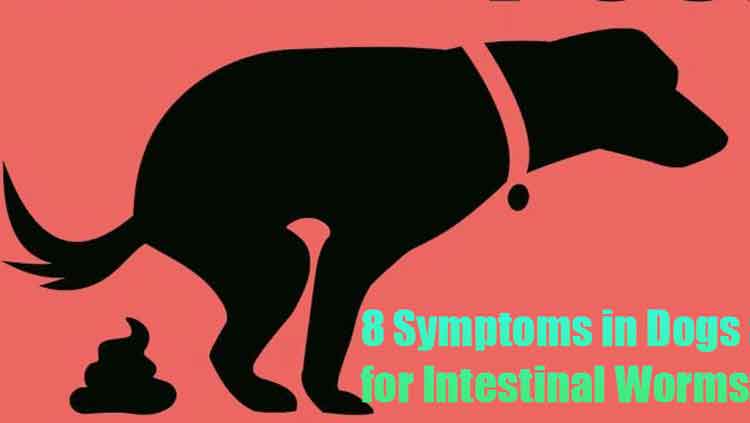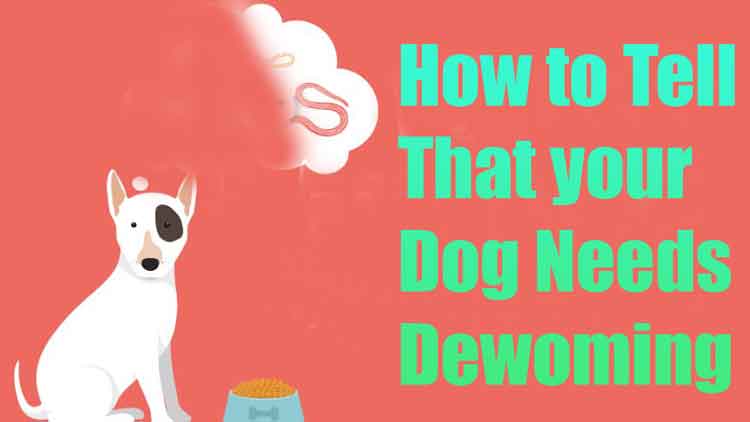Deworming in dogs is very important. In fact, it is more important to timely deworm a puppy. If you delay even a little time, you will see quite some changes in their health including worms itself coming out with your dog’s poop, and believe it or not it is very scary. If you are a busy pet owner and often forget about the deworming date of your dog, then today in this article, we will tell you How to know if your Dog Needs Deworming. Yes, these 8 signs in dogs will tell you that their deworming is due.
PS: We will never suggest you depend on these signs to deworm your dog. Always note down your dog’s deworming date and follow it till the next date. Just learn this information, it may become helpful sometimes.
Learn from our expert’s article about the Deworming Time Table.
Deworming your beloved canine companion is a crucial aspect of responsible pet ownership. Worm infestations in dogs are more common than many pet owners realize, and they can lead to various health issues if left untreated.
In this comprehensive guide, we will delve into the world of worms in dogs, explore how to identify if your dog has worms and discuss the five unmistakable signs that indicate your furry friend is due for deworming.
Worms in Dogs
Worms, scientifically known as helminths, are parasitic organisms that can reside in various parts of a dog’s body. The most common types of worms that affect dogs include roundworms, tapeworms, hookworms, and whipworms. These insidious creatures can cause discomfort, malnutrition, and even severe health complications if not promptly addressed.
Dogs can contract worms through various sources, including contaminated water, soil, or infected animal feces. Puppies are especially vulnerable, as they can inherit worms from their mother or acquire them from their environment. As responsible pet parents, it is essential to understand the signs and symptoms of worm infestations to ensure the well-being of our canine companions.
How to Tell If a Dog Has Intestinal Worms
Timely deworming is very important. Still, people often forget about deworming their dog. Not just about deworming, dogs show many symptoms because of their health issues just like human.
If you are a concerned pet parent then you should know which symptoms that dogs show if they have worms in their belly.
Most of the time, when a dog is in their puppy age, they simply start to poop out worms or you will notice worms constantly coming out from their butthole. Your dog will feel itchy in their ass and they will often itch the area. Or even they rub their ass in the floor because of the moving worms inside or outside their ass.
If you see such behavior then immediately go to a vet shop and get a dewormer. They will also tell you the details and how to give it to your dog.
Now this is one of the deworming symptoms. Here are some other behavior changes you may notice if your dog needs to be dewormed.
8 Signs in Dogs that tells their Deworming is Due
Due to Intestinal Worms, a dog can suffer from many health issues. Intestinal Worms worms take most of the nutrients from their food, thus your dog gets less nutrients and over time they show many symptoms due to poor nutrition supply in their body. These 8 symptoms in dogs tells you that your dog’s deworming is due-

Changes in Appetite and Weight
Dogs with worm infestations often experience changes in their appetite. They may either show an insatiable hunger, leading to weight gain, or a sudden loss of appetite and weight loss due to the worms absorbing the nutrients intended for the dog. If you notice anything like this, then verify their age and deworming time to confirm if it is really a sign of Worms in your Dog.
Vomiting and Diarrhea
Worms can irritate the digestive tract, leading to symptoms such as vomiting and diarrhea. If your dog experiences chronic gastrointestinal issues, it could be a sign of a worm infestation. In many cases, a dog starts to vomit once in a while. It is normal if your dog is vomiting once in every week but if they do this frequently, you should ask a vet about it. Also, get the deworming data of that dog.
Lethargy and Weakness
Another symptom to know if your dog’s deworming is due is to notice if the Dog with worms is showing lethargy and lack of energy and enthusiasm. Weakness and a reluctance to engage in activities they once enjoyed are common signs of a parasitic infection.
Physical discomfort caused by worm infestations can lead to stress in dogs. A dog shows this kind of symptoms when it is too late for their deworming. So, if you see your dog getting lazy and does not show interest in playing then confirm the deworming data. Bloated Abdomen:
A bloated or distended abdomen, often accompanied by discomfort, can be a symptom of a severe worm infestation. This occurs due to the accumulation of gas in the intestinal tract caused by certain types of worms.
A bloated abdomen can also lead to vomiting or loss of appetite. In such cases, always seek veterinary attention.
Consistent Gastrointestinal Distress
Chronic vomiting, diarrhea, or visible discomfort after eating are signs that your dog’s digestive system might be compromised by worms. Address these symptoms promptly to prevent further complications.
Eye Discharge
Eye Discharge or conjunctivitis is a common thing in dogs. But it becomes a matter of concern when your dog releases too much or thick puss. It can also be a worm infection symptom. Frequently releasing mucus in their eye could be a sign that your dog needs deworming.
Bad Breath or Smelly Breath
If you notice your dog is having a bad smelly breath then it can also be a sign to know that your dog’s deworming is due. Infection in their Gastroenteritis causes their breath to become smelly. It can happen because of poor digestion due to a worm infection in your dog’s stomach.
Excessive Hair Fall
Excessive hair fall occurs in some serious cases like the dog has been suffering from a worm infection for a long time. Worms consume nutrients from the dog’s body, leading to a deficiency in essential vitamins and minerals. These nutrients are vital for healthy skin and coat. A lack of proper nutrition can result in dry, brittle hair that falls out easily.
Chronic worm infestations can weaken the dog’s immune system. Some dogs may experience skin irritation and itchiness due to worm infestations. Constant scratching or biting at the skin can damage the hair follicles, leading to hair loss.
Bad eating Behavior:
Many times dog tries to eat poop or anything that is rotten. Dogs eating poop or consuming rotten things, a behavior known as coprophagia, can be a sign of various underlying issues, and worm infection is one of them.
Dogs might eat poop or strange things if they aren’t getting enough nutrients from their food. Worms in their tummy can stop them from getting the important stuff their body needs. This can make them want to eat weird things, even poop.
Conclusion: Prioritize Your Dog’s Health
In conclusion, being aware of the signs that indicate your dog needs deworming is paramount for responsible pet ownership. Regular veterinary check-ups, keen observation of your dog’s behavior, and prompt action can safeguard your furry friend from the detrimental effects of worm infestations.
Remember, a healthy dog is a happy dog. By staying vigilant and proactive, you are not only ensuring your dog’s well-being but also fostering a strong and enduring bond with your canine companion. Prioritize your dog’s health, and together, you can enjoy many joyful years of companionship.
Thanks for visiting PawFactsnGuide.

